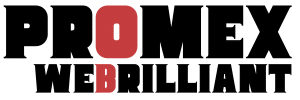Mobile Apps Development
A Beginner’s Guide to App Development: Types, Tools, and Languages
In today’s digital world, mobile apps have become an essential part of our lives. From social media and gaming to shopping and banking, apps make everything more accessible and efficient. But did you know that not all apps are built the same way? App development involves different types of apps, tools, and programming languages, each tailored to specific needs and experiences. Here’s a simple guide to understanding how app development works.
Types of Apps
1. Native Apps
Native apps are built specifically for a particular platform, like iOS or Android. They offer the best performance, faster load times, and full access to device features like cameras and GPS.
- Best For: Gaming, high-performance apps.
- Languages Used:
- iOS: Swift, Objective-C
- Android: Kotlin, Java
2. Web Apps
Web apps are essentially websites designed to look and feel like mobile apps. They run on browsers and don’t require downloading from app stores.
- Best For: Lightweight apps, platforms needing easy updates.
- Technologies Used:
- HTML, CSS, JavaScript
- Frameworks: React.js, Angular.js
3. Hybrid Apps
Hybrid apps are a combination of native and web apps. They use a single codebase for multiple platforms, which makes them faster to develop.
- Best For: Businesses looking to save time and costs.
- Technologies Used:
- Ionic, Cordova, Flutter
4. WebView Apps
WebView apps are a type of hybrid app where a web app is displayed inside a mobile app container. While not as robust as native apps, they are quick and cost-effective to build.
- Best For: Showcasing existing web content in an app format.
- Technologies Used:
- JavaScript, CSS, HTML
5. Fluid Apps
Fluid apps, often built with frameworks like Flutter or React Native, allow for seamless user experiences across platforms. They are responsive, fast, and deliver near-native performance.
- Best For: Apps needing flexibility and high responsiveness.
- Technologies Used:
- Flutter, React Native
Languages and Tools in App Development
The tools and languages you choose depend on the type of app you’re building. Here are some commonly used ones:
Programming Languages:
- Swift & Kotlin: Ideal for native app development.
- JavaScript: Dominates web and hybrid app development.
- Dart: Used in Flutter for fluid app experiences.
- Python: Popular for backend logic in apps.
Frameworks and Libraries:
- React Native: For hybrid and fluid apps with a native feel.
- Flutter: Allows for high-performance, cross-platform apps.
- Ionic: Great for hybrid apps.
Development Tools:
- Xcode: For iOS development.
- Android Studio: For Android development.
- VS Code: A versatile IDE for web and hybrid apps.
What to Consider Before Starting App Development
1. Understand Your Audience
Do your users prefer Android, iOS, or both? This helps decide whether to build native or hybrid apps.
2. Choose the Right Approach
If performance is a priority, go native. If cost-efficiency matters, consider hybrid or WebView apps.
3. Plan for Scalability
Ensure your app can grow with your business by choosing flexible tools and frameworks.
4. Focus on Security
Secure coding practices are vital, especially for apps handling sensitive data.
Why Choosing the Right Developer Matters
A skilled developer understands how to choose the right tools and technologies to match your needs. They can:
- Optimize performance with the right frameworks.
- Build secure and scalable solutions.
- Ensure the app offers a seamless user experience.
Conclusion
App development isn’t one-size-fits-all. Whether you need a responsive web app, a high-performance native app, or a hybrid solution, understanding the basics helps you make informed decisions. By pairing your vision with the expertise of a capable developer, you can build an app that meets your goals and delights your users.
The future of your app starts with the right choices today. 🚀
